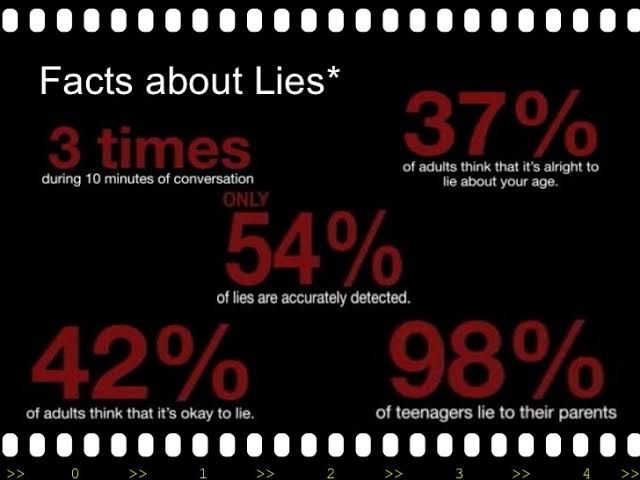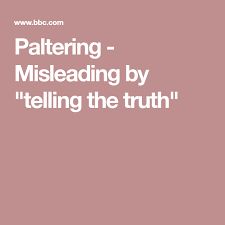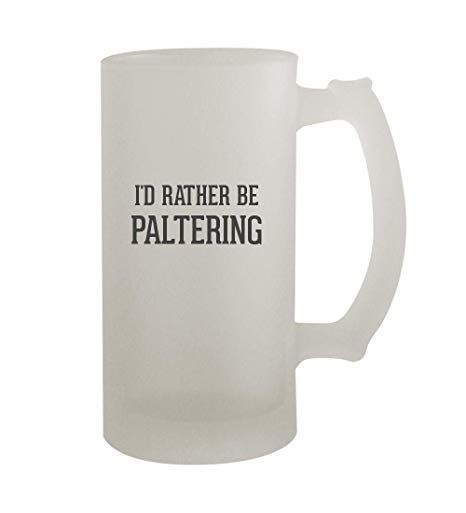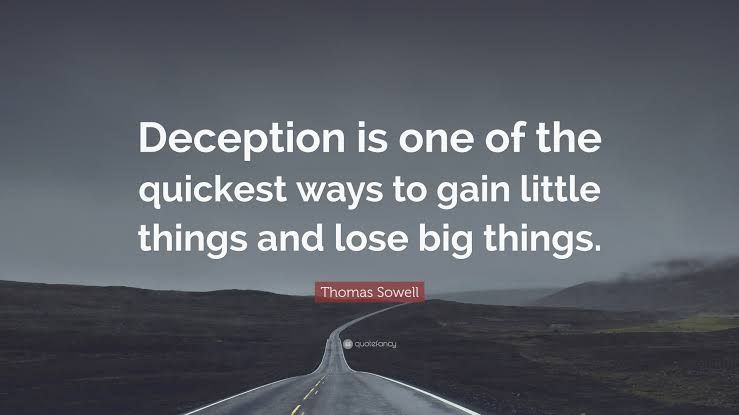Paltering - The Devious Art Of Deception
May 17, 2019 • 81 views

Deception refers to an act or statement which hides, misleads one from the truth, or promotes something which isn't all true. A common technique used for personal gain, it can involve dissimulation, propaganda, distraction, camouflage, concealment in order to achieve acceptance for something invalid.
Palter is an archaic verb, meaning to trifle with. For example, this artwork shall not be paltered with . In modern uses, however, paltering has a slightly different and specific meaning.

Lying, another form of deception, can be done by various ways - like, telling an outright white lie e.g. complementing a person's dress which actually isn't nice ; a half lie, etc. But do you know there's another form of lying, which uses all true facts! Unbelievable, right. But that's the truth of paltering - when the truth is a lie.
Surprisingly, this completely new form of deception is actually very common. People use it all the time.

Consider a situation where you reach late to your school. The teacher asks the reason and you reply - "There was a traffic jam on the Ring Road". Now, this fact is true, but it doesn't specify whether or not you were held back due to this jam. Another example - your friend asks you whether you've finished your homework? And you reply - I've finished the essay. Now, you may have finished writing an essay a week ago but it isn't clear whether that essay was actually a part of your homework or not.
This is paltering - lying using true facts.
Like outright lies(involving use of false facts), paltering is an active form of deception. So basically, you are speaking the truth, but that truth isn't true for the situation. An interesting fact is that, people, in their hearts of heart, consider paltering to be better than outright lying. That's because it allows them to maintain an image of themselves as honest and trustworthy individuals (after all, their paltering was truthful).

Paltering is actually a part and parcel of our lives. It is employed as a tactic in negotiations; and is used extensively in areas such as politics and law. Negotiators often have access to unique information. They usually depend on one another’s claims about that information. Thus, negotiators can often exploit their counterparts by using deception to achieve an upper hand in the negotiations.
Having said all that, it is important to know whether or not paltering is ethical. The answer is - no.

Potential deceivers may find paltering morally more acceptable than straight lying, but the effect on the recipient is the same. They feel that they were misled. Hence, before succumbing to the temptation of using paltering as a strategy , beware of the consequences.After all, all deception results in the same outcome - breaking of the trust. And this harms relationships.
